- Home
- Diana Palmer
All That Glitters Page 4
All That Glitters Read online
Page 4
“You should have been a designer,” came the dry reply.
“I’ll drink to that.” Dee lifted her tea and sipped.
Designing the dress became a prime project for Ivory in the two weeks that followed. She threw away many of her sketches before she finally settled on an updated copy of a gown she’d seen in Tudor portraits of the mid-sixteenth century. It had a square neckline with lavish embroidery and puffed sleeves tapering down to tight cuffs. She left the length as it would have been in that period, but cut it down to a formfitting silhouette that stopped at her ankles. It was a striking concept, but it wasn’t suited to slinky Qiana. It needed to be made of white satin and embroidered with colored thread. But how could she afford that sort of fabric when she was hardly able to buy groceries? She’d just have to make do with what Dee was willing to give her, she thought, and resigned herself to the fact.
At work one day she showed the drawings to Dee, who stared at them openmouthed.
“Will it do?” Ivory asked her, uncertain even now.
“Do? My God!”
“I thought I’d start cutting it out tomorrow. It’s Saturday. If you don’t have any other plans...” she began.
“You can’t use a limp fabric on this,” Dee said.
“Yes, I can,” she argued. “The embroidery will...”
“It will pucker,” Dee said.
Ivory hesitated. Dee was right. A light fabric embroidered so heavily probably would pucker. Maybe she could cut down on the embroidery...
“It needs to be white satin,” Dee suggested.
“Well, yes, but you’ve already got the Qiana. I can’t afford...”
“I certainly can.” Dee held up a hand when she started to protest. “It won’t be that expensive,” she said shortly. “You can make me another, in a different color, and I’ll pay you for it. That will cover the cost of materials for yours.”
“You want me to make you one?”
“Is there a parrot in your throat?” Dee chuckled. “Listen, you dolt, that’s the most beautiful thing I’ve ever seen in my life. Of course I want one, and in satin. Everybody will want one when they see you in it. I think it would make a sensational wedding dress, as well! As an evening gown it will be a knockout. I’m just getting my order in first. You’re going to start a riot when you walk in!”
“Well, I liked it, but I never know if something’s quite good enough or not.”
“This is good enough. Is it ever!” Dee shook her head as she studied the drawing. Her fingers traced its lines lovingly. “It’s breathtaking. Just breathtaking!” She put it down. “We’ll buy fabric on our lunch hour. I know just the place to go.”
“Dee, are you sure?” Ivory asked worriedly.
“I’m sure!”
Miss Raines walked by as Ivory was putting the working sketch back into her portfolio. She gave it a haughty glance.
“Overdone!” she pronounced. “You’ll have to do better than that if you expect to get a promotion here,” she added as she swept out of the room.
Ivory bit her lip and didn’t reply, but she was seething inside. One day, she promised herself, she was going to prove to Virginia Raines that she had what it took to become a top designer.
The pattern was complicated, but not so difficult to make. Ivory had learned a number of skills in design school, and pattern-making was one of them. She knew how to adjust one, as well, to ensure a customized fit. She worked with the pattern until she had it exactly the way she wanted it before she ever spread it on the pure white satin.
Then, it was just a matter of careful cutting. She basted it together and was delighted with the end result. It was a dress worthy of royalty, and she felt justifiably proud of her efforts, Miss Raines’s biting comment notwithstanding.
The embroidery took the longest. She had to design that, too, and then choose colored threads to stitch it. She was particularly fond of a delicate ivy and wildflower pattern she had seen in an illuminated Book of Hours. It took up most of her spare time after work and she only hoped that she would be able to finish it in time.
Tim watched her nimble fingers work on the embroidery the Saturday before the party, while he played on the bare floor of the shelter with the wooden toy Mr. Johnson had made for him. Ivory had carried the dress with her to work on because she had so little time left to finish it that she couldn’t waste a minute. Right now, she was babysitting Miriam’s children while Miriam looked for a job again.
“That sure is pretty, Ivory,” he remarked. “Takes a lot of time, huh?”
“A lot. But it’s the kind of work I like to do,” she said, smiling.
“I think I’d like to be a doctor when I grow up, Ivory,” Tim confided. “I could help cure people. But I don’t think I’ll get to do that.” He was as cynical as a boy twice his age. As he slid the small wooden truck across the floor, his silence was heavy with despair.
Ivory watched him as she worked, wondering sadly if he’d live long enough—or if she’d live long enough—to see any of his dreams come true.
“Ivory, do you have a mama?” he asked unexpectedly.
She pricked her finger and had to move it quickly, before any blood got on the white satin. She sucked it and then wrapped it in a piece of thin paper she’d used to make the pattern.
“Most everyone has a mama, Tim,” she said after she’d recovered.
“I’m sorry I made you stick yourself,” he replied. He sighed because being stuck had led to his big problem.
His great, dark eyes searched her face. “You don’t like your mama, do you?”
She let her eyelids fall over her eyes to conceal the expression in them. She put down the embroidery and went to get some toilet tissue to stick to the pinprick, because it was still bleeding.
She looked up and saw Miriam coming toward them with a resigned face. She didn’t have to ask if Tim’s mama had found work. “I have to go now. Help your mama with the girls, okay?” she said gently.
He got up, toy and all. “You ain’t mad at me, are you?”
She hugged him. “No, I’m not mad. Come on. Let’s find Dee and you can walk out with me. I think I’ll stop by Mr. Galloway’s to get some adhesive bandages. I don’t want to get bloodstains on this dress.”
At all costs, her dress had to be perfect. She would be on display at the party. With any luck, Mr. Kells would be there and he might see it and remark on it. If he did, she might get her foot in the door. All she needed was a chance, and she’d be on her way to a glorious career. She just knew it.
CHAPTER THREE
BELLE HARRIS WAS one of the models for the January fashion shows. She was being fitted with one of Miss Raines’s new designs, a sheath dress, and while that was being done, she looked over the accessories that Ivory had chosen to go with it.
Accustomed to Miss Raines’s constant criticism of her choices, Ivory waited for the gloriously beautiful redhead to make a stinging remark of her own. But she didn’t.
“Why, you have a wonderful eye for color,” Belle remarked, her green eyes glowing as she watched Ivory adjust the patterned green scarf and gold belt that she’d paired with the simple gray silk sheath. She looked around to make sure Miss Raines wasn’t eavesdropping. “Honestly, when I saw the sketch for this dress, I groaned. Virginia Raines has no imagination. None whatsoever. Why Curry keeps her on is beyond me. Perhaps it’s because she’s the age of his mother.”
“Curry?” Ivory ventured, curious.
“Curry Kells, silly,” Belle explained. “He owns a lot of companies around town, and he’s super rich. He takes me out a lot. He’s a real gentleman. No kinky stuff, no fighting him off at the end of the evening—although, just between us, I’d love the chance! He’s good-looking and cultured, and he smells like a male cologne commercial. He always wears one of those sexy scents that make you want to purr.”
“One of the girls said he was...visually challenged.”
“How politically correct!” Belle said with a laugh. “He’s got one eye, Ivory. He lost it in a gang fight in his teens.”
“Oh!”
“Don’t look so dismayed. The other boy lost his freedom. He killed one of Curry’s friends and was arrested for it. But not until after Curry caught up with him.”
“Gangs never seem to go out of style,” Ivory remarked. “I’ve seen them, and they scare me.”
“It seems every neighborhood has one.” Belle looked in the mirror, frowned, then swept her hair up and pinned it. “There, doesn’t that suit the dress better?”
“Yes, it does.”
“I’ll have the hairdresser do it that way for the show. How about shoes?”
“I had these covered...” She produced a pair of pumps covered in gold satin.
“Elegant!”
“Trashy!” Miss Raines harrumphed when she saw them. “Black pumps, Ivory, not those vulgar things. Not with my dress!”
Belle and Ivory exchanged resigned glances and Ivory replaced the pumps. Miss Raines had no tolerance for people who disagreed with her ideas. In her world everything was structured, measured, with no allowance for spontaneity. The sad thing was that everyone around her was expected to comply with her design sense. Ivory despaired of ever using her creative abilities under that stifling control.
Later, when she had a little time to herself, she mulled over what Belle had said to her about Curry Kells. She began to suspect that the man she’d met on the cathedral steps was Kells. His presence at the company that day, only half a block from the cathedral, and the black eye patch clinched it.
If that was the case, how would she approach him about her designs now? He’d probably think she was pursuing him for another handout! On the other hand, the party would be the ideal time to catch his eye, and she wouldn’t have to work too hard if her dress drew the attention she expected. He’d be bound to ask her who the designer was. And she’d tell him. She hoped Miss Raines would be standing right at her side when he asked.
* * *
IN HIS WALL STREET office, Curry Kells was just finishing a complicated financial report for his board of directors. He saved the file and turned off the computer, feeling as if he’d done two days’ work in a quarter of the time.
He stretched and grimaced at the protest from his sore muscles. The leather chair was remarkably uncomfortable for something that was supposed to be both functional and luxurious. He remembered the ramshackle office he’d occupied years ago when he was only a clerk in a manufacturing company, and the tattered but very comfortable chair he’d used.
He looked around his carpeted office with its solid oak furnishings and black leather chairs and sofa. There were five awards in a cabinet against the wall, three of which were for humanitarian efforts in the inner city. The other two were from business associates: one was a Chamber of Commerce Man of the Year award, and the other was a youth club honor for organizing a sports club for underprivileged boys. He hadn’t done the humanitarian work for the awards. To him, his community service was a payback. If it hadn’t been for a successful businessman giving him a boost up the ladder, he’d still be an underpaid clerk. A man much like the man he’d become had made all his advancements possible by funding his education and supplementing his mother’s meager income as a hotel housekeeper. He’d been able to see his sister through college and pay for a good nursing home for his severely mentally challenged brother now that his mother was no longer physically able to look after him.
He stood up and looked out his office window at the city skyline that reached to the river. His mother’s condition was far more serious than he’d realized. He’d thought she was indestructible, immortal. It had been her confidence in him, her quiet support, that had made it possible for him to rise above their hopeless poverty and make a success of his life. With little more than a good brain and some business sense, he’d made more than two million dollars already. He’d made sure that his mother shared his success, that she lived well. But now all the money in the world wasn’t going to help her. He was helpless, and the fury he felt was spilling into his business life. It infuriated him that he could do nothing for the woman who’d worked herself almost to death providing for her family.
The buzzer sounded twice before it distracted him from his morose introspection. He turned impatiently and pushed the button on his telephone. “Yes?”
“You asked Miss Raines to come and see you, sir.”
“Yes. So I did. Send her in.” He’d had some comments from Harry Lambert, one of his vice presidents, on Miss Raines’s treatment of the younger designers and her stranglehold on the company’s seasonal designs. She was one of the senior designers he’d kept on from the old company. She was, in fact, the senior designer, and about his mother’s age. She reminded him of Teresa Kells—salt-and-pepper hair and no frills, ever.
“Send her in,” he said again curtly.
A minute later, the door opened and his secretary admitted a visibly ruffled Virginia Raines. She was wearing a dark suit with a simple white blouse, probably one of her own designs. He wondered irritably why she didn’t deviate from the same pattern she seemed to use for all her work. He didn’t like dismissing senior staff or demoting them, but Miss Raines was costing him sales. The company was still operating in the red, which was really all that he expected from such a new acquisition; but he’d been hoping for some small rise in sales over the months since his takeover, and it hadn’t been forthcoming.
“Come in and sit down, Miss Raines,” he invited, motioning her into a chair.
“Yes, sir.” She sat primly, her legs to one side, her hands folded neatly in her lap. “If it’s about the new lines, they’re coming along very well, Mr. Kells.”
“They may be. Sales are not,” he said bluntly. He leaned forward, his lean hands on the desk. “We need something exciting for our salesmen to push to the buyers for summer, Miss Raines. Our sales haven’t risen one percentage point since I’ve been here. Our executives and our stockholders are getting worried. I can’t say I blame them. Our competitors are gaining ground with some, shall we say, fairly outlandish designs.”
She flushed a little. “Sir, elegance is still a matter of simplicity. I can’t remind you often enough that frills and fads go out of style as often as they come in.”
“And I can’t remind you often enough that fads are a boon to the industry. As long as women purchase more clothes each season to keep in step, we make money. If we produce only time-honored designs that carry over for several seasons, we bankrupt ourselves.”
She cleared her throat and lifted her chin. “I have been a fashion designer for twenty-five years...”
“And a very good one.” In your day, he wanted to add. He forced a smile. “However, I feel that we need some new blood in our design staff. I want to see some outrageous fashions, Miss Raines, some eye-catching, controversial things that will make the top fashion writers look twice at us. On that note, I asked you here to check on the winner in that design competition we held in the spring. How is she measuring up? I can’t say that I’ve had a single progress report from you since her arrival.”
Miss Raines smiled with faint condescension. “Well, she’s very young, of course—only twenty-two. And the contest was really more of a publicity thing, wasn’t it? I mean, you hardly expect to find a creative genius come from a Texas design school.”
He gave her a hard look, and she squirmed. He didn’t relent. He’d found over the years that when it came to flat intimidation, a wordless glare got more results than volumes of words. He let her squirm some more before he answered the insulting remark.
“I should hardly think it matters where the design school is, if the girl is talented. You sound as if she should never have been hired.”
“Oh, I didn’t mean to imply that, sir
! It’s just that she’s...causing dissension,” she said firmly. “I don’t dislike her. She’s a hard worker. But she interferes with my models and she’s always trying to put herself forward as a designer. She’s just a sketch designer, and she’s only been with the firm for six months. It’s impossible to let her have a hand in our new lines with so little experience. She’s just twenty-two,” she repeated, to emphasize the age. “Perhaps you could find her another spot, another place in the organization. In another building,” she emphasized.
Curry stared at her curiously. It was highly irregular for an employee to ask him personally to remove another employee. Miss Raines looked more than ruffled. She looked frightened.
“Doing what?”
“She might work well in sales,” she said vaguely.
“You want her removed. Why?”
The question, so deftly fired at her, caught her unawares. She stammered. “Well, she might be happier somewhere else.”
He recognized professional jealousy when he saw it. His gaze narrowed. “The happiness of the staff is hardly a day-to-day concern of mine. Unless you have some tangible evidence of incompetence, you’ll leave her where she is and work out whatever problems you have.” He sat back in his chair, fixing her with that cold stare. “In the meantime, Miss Raines, I want to see some new designs in our spring and summer line, something different and exciting.”
“Mr. Kells, perhaps when you learn a little more about design...” she began with faint condescension.
“Perhaps you should learn a little bit more about spreadsheets and profit,” he returned icily. “If you can’t or won’t ditch your outdated designs and show me something new, then by God, I’ll find someone who can. Do I make myself clear?”
Her face drew up like a prune. She cleared her throat. “I’ll do what I can,” she said, almost choking. The former president of the company had been an elderly man with a kindly attitude toward her work. This barracuda was cut from different cloth.
She rose to her feet. He was dangerous, and she’d realized it just in time; but she couldn’t resist one last gambit. “One more thing, Mr. Kells. Surely you didn’t mean to invite the entire design staff to this party you’re giving?” she asked hopefully.

 A Cattleman's Honor
A Cattleman's Honor For Now and Forever
For Now and Forever Texas Proud and Circle of Gold
Texas Proud and Circle of Gold Marrying My Cowboy
Marrying My Cowboy Wyoming Heart
Wyoming Heart Christmas Kisses with My Cowboy
Christmas Kisses with My Cowboy Wyoming True
Wyoming True The Rancher's Wedding
The Rancher's Wedding Mercenary's Woman ; Outlawed!
Mercenary's Woman ; Outlawed! Long, Tall Texans: Stanton ; Long, Tall Texans: Garon
Long, Tall Texans: Stanton ; Long, Tall Texans: Garon Lawless
Lawless Blake
Blake Escapade
Escapade Fire Brand
Fire Brand Cattleman's Choice
Cattleman's Choice Mountain Man
Mountain Man Long, Tall and Tempted
Long, Tall and Tempted A Love Like This
A Love Like This Miss Greenhorn
Miss Greenhorn Magnolia
Magnolia Lord of the Desert
Lord of the Desert Wyoming Fierce
Wyoming Fierce True Colors
True Colors Calamity Mom
Calamity Mom The Pursuit
The Pursuit Rogue Stallion
Rogue Stallion Date with a Cowboy
Date with a Cowboy Heart of Winter
Heart of Winter Friends and Lovers
Friends and Lovers Love on Trial
Love on Trial Boss Man
Boss Man Callaghan's Bride
Callaghan's Bride Before Sunrise
Before Sunrise The Men of Medicine Ridge
The Men of Medicine Ridge Texas Proud
Texas Proud Wyoming Tough
Wyoming Tough Passion Flower
Passion Flower Maggie's Dad
Maggie's Dad Donavan
Donavan The Rancher & Heart of Stone
The Rancher & Heart of Stone Long, Tall Texans: Tom
Long, Tall Texans: Tom The Case of the Mesmerizing Boss
The Case of the Mesmerizing Boss Montana Mavericks Weddings
Montana Mavericks Weddings Redbird
Redbird Wyoming Strong
Wyoming Strong Darling Enemy
Darling Enemy Love by Proxy
Love by Proxy Coltrain's Proposal
Coltrain's Proposal The Best Is Yet to Come & Maternity Bride
The Best Is Yet to Come & Maternity Bride Rawhide and Lace
Rawhide and Lace Wyoming Rugged
Wyoming Rugged Patient Nurse
Patient Nurse Undaunted
Undaunted Long Tall Texans Series Book 13 - Redbird
Long Tall Texans Series Book 13 - Redbird Outsider
Outsider Long, Tall Texans: Drew
Long, Tall Texans: Drew Long, Tall Texans--Christopher
Long, Tall Texans--Christopher Merciless
Merciless A Match Made Under the Mistletoe
A Match Made Under the Mistletoe Evan
Evan Hunter
Hunter Now and Forever
Now and Forever Hard to Handle
Hard to Handle Amelia
Amelia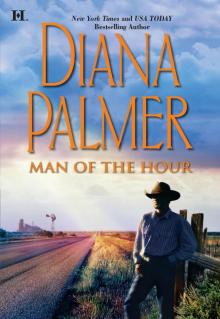 Man of the Hour
Man of the Hour Invincible
Invincible The Maverick
The Maverick Long, Tall Texans--Guy
Long, Tall Texans--Guy Noelle
Noelle Enamored
Enamored The Best Is Yet to Come
The Best Is Yet to Come The Humbug Man
The Humbug Man Wyoming Brave
Wyoming Brave Calhoun
Calhoun Long, Tall Texans--Harden
Long, Tall Texans--Harden The Reluctant Father
The Reluctant Father Lawman
Lawman Long, Tall Texans: Hank & Ultimate Cowboy ; Long, Tall Texans: Hank
Long, Tall Texans: Hank & Ultimate Cowboy ; Long, Tall Texans: Hank Grant
Grant Nelson's Brand
Nelson's Brand Wyoming Legend
Wyoming Legend Diamond Spur
Diamond Spur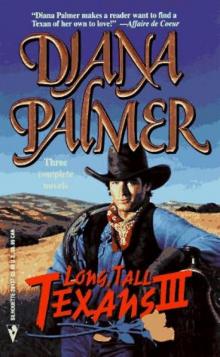 That Burke Man
That Burke Man Wyoming Bold (Mills & Boon M&B)
Wyoming Bold (Mills & Boon M&B) Heartless
Heartless Long, Tall Texans--Luke
Long, Tall Texans--Luke To Have and to Hold
To Have and to Hold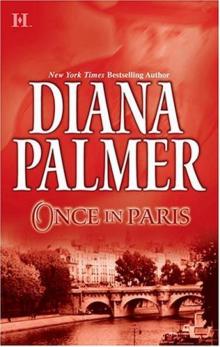 Once in Paris
Once in Paris A Husband for Christmas: Snow KissesLionhearted
A Husband for Christmas: Snow KissesLionhearted Night Fever
Night Fever Beloved
Beloved The Australian
The Australian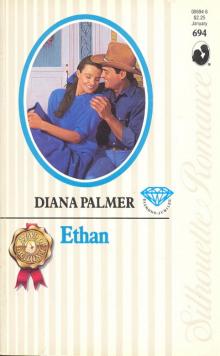 Ethan
Ethan Long, Tall Texans: Jobe
Long, Tall Texans: Jobe Bound by Honor: Mercenary's WomanThe Winter Soldier
Bound by Honor: Mercenary's WomanThe Winter Soldier Tender Stranger
Tender Stranger After Midnight
After Midnight September Morning
September Morning To Wear His Ring
To Wear His Ring Heartbreaker
Heartbreaker Will of Steel
Will of Steel Dangerous
Dangerous Fit for a King
Fit for a King Diamond in the Rough
Diamond in the Rough Matt Caldwell: Texas Tycoon
Matt Caldwell: Texas Tycoon Iron Cowboy
Iron Cowboy Fire And Ice
Fire And Ice Long, Tall Texans--Quinn--A Single Dad Western Romance
Long, Tall Texans--Quinn--A Single Dad Western Romance Montana Mavericks, Books 1-4
Montana Mavericks, Books 1-4 Denim and Lace
Denim and Lace Eye of the Tiger
Eye of the Tiger The Princess Bride
The Princess Bride Long, Tall Texans: Rey ; Long, Tall Texans: Curtis ; A Man of Means ; Garden Cop
Long, Tall Texans: Rey ; Long, Tall Texans: Curtis ; A Man of Means ; Garden Cop Justin
Justin Nora
Nora The Morcai Battalion
The Morcai Battalion Heart of Stone
Heart of Stone The Morcai Battalion: The Recruit
The Morcai Battalion: The Recruit To Love and Cherish
To Love and Cherish Invictus
Invictus Regan's Pride
Regan's Pride A Man for All Seasons
A Man for All Seasons Sweet Enemy
Sweet Enemy Desperado
Desperado Lacy
Lacy The Winter Man
The Winter Man Diamond Girl
Diamond Girl Man of Ice
Man of Ice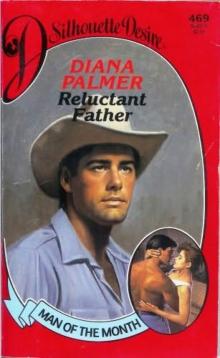 Reluctant Father
Reluctant Father Christmas with My Cowboy
Christmas with My Cowboy Love with a Long, Tall Texan
Love with a Long, Tall Texan Wyoming Bold wm-3
Wyoming Bold wm-3 King's Ransom
King's Ransom Christmas Cowboy
Christmas Cowboy Heart of Ice
Heart of Ice Fearless
Fearless Long, Tall Texans_Hank
Long, Tall Texans_Hank Unbridled
Unbridled Champagne Girl
Champagne Girl The Greatest Gift
The Greatest Gift Storm Over the Lake
Storm Over the Lake Sutton's Way
Sutton's Way Lionhearted
Lionhearted Renegade
Renegade Betrayed by Love
Betrayed by Love Dream's End
Dream's End All That Glitters
All That Glitters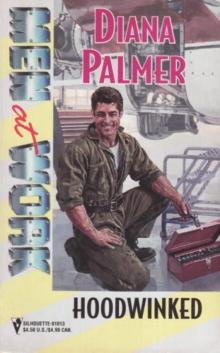 Hoodwinked
Hoodwinked Soldier of Fortune
Soldier of Fortune Rage of Passion
Rage of Passion Winter Roses
Winter Roses Rough Diamonds: Wyoming ToughDiamond in the Rough
Rough Diamonds: Wyoming ToughDiamond in the Rough Protector
Protector Emmett
Emmett True Blue
True Blue The Tender Stranger
The Tender Stranger Lone Star Winter
Lone Star Winter Man in Control
Man in Control The Rawhide Man
The Rawhide Man Untamed
Untamed Midnight Rider
Midnight Rider Trilby
Trilby A Long Tall Texan Summer
A Long Tall Texan Summer Tangled Destinies
Tangled Destinies LovePlay
LovePlay Blind Promises
Blind Promises Carrera's Bride
Carrera's Bride Calamity Mum
Calamity Mum Long, Tall Texan Legacy
Long, Tall Texan Legacy Bound by Honor
Bound by Honor Wyoming Winter--A Small-Town Christmas Romance
Wyoming Winter--A Small-Town Christmas Romance Mystery Man
Mystery Man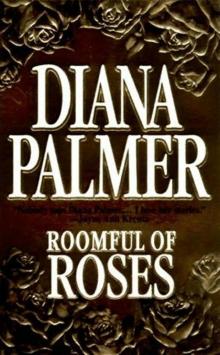 Roomful of Roses
Roomful of Roses Defender
Defender Bound by a Promise
Bound by a Promise Paper Rose
Paper Rose If Winter Comes
If Winter Comes Circle of Gold
Circle of Gold Cattleman's Pride
Cattleman's Pride The Texas Ranger
The Texas Ranger Lady Love
Lady Love Unlikely Lover
Unlikely Lover A Man of Means
A Man of Means The Snow Man
The Snow Man The Case of the Missing Secretary
The Case of the Missing Secretary Harden
Harden Tough to Tame
Tough to Tame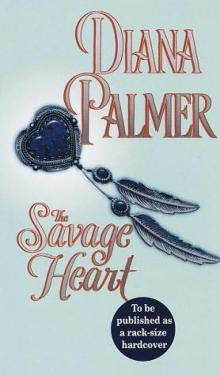 The Savage Heart
The Savage Heart